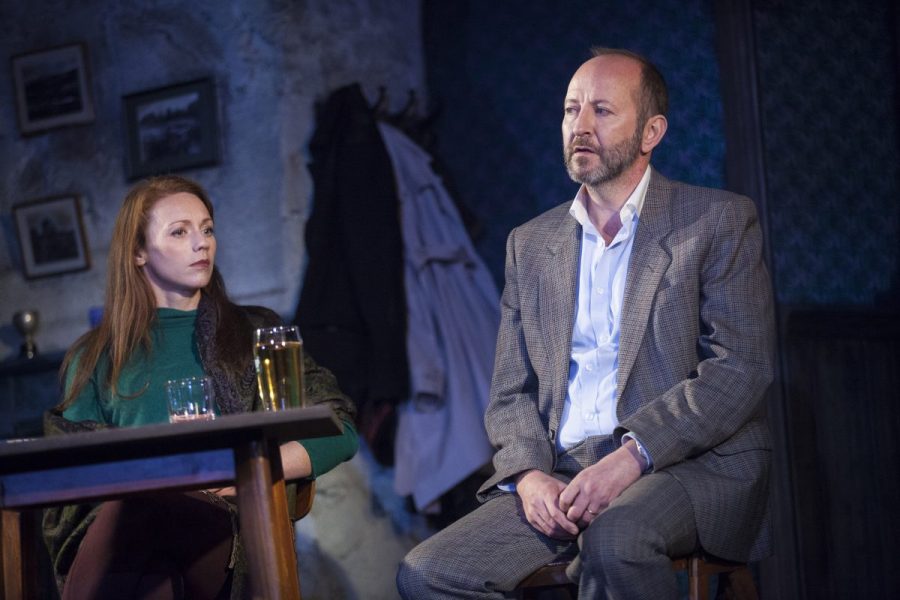@ Royal Lyceum Theatre, Edinburgh, until Sat 6 Feb 2016
The Lyceum’s production of the award-winning The Weir is a hugely enjoyable piece of theatre which is both eerie and humorous. Set in an isolated pub in County Leitrim, this accomplished piece depicts an evening of drinking and storytelling when bartender Brendan (Brian Gleeson) and three locals are joined by the mysterious Valerie (Lucianne McEvoy), a newcomer to the area. The arrival of an attractive young woman in their neck of the woods causes much excitement between the three men, and the need to nip out for a bottle of white wine, which is rarely supped in the establishment. The lads use this opportunity to take digs at each other and settle old scores, the dialogue and timing between the actors a delight for the audience. The atmosphere, however, turns darker when their banter is followed by the sharing of ghost stories, and Valerie surprises her companions with a tragic story of her own.
The set design (Francis O’Connor) is pure perfection, instantly evoking the atmosphere of a cosy rural pub, with both a simplicity and meticulous attention to detail which includes the photographs on the wall and the particular brands of booze displayed behind the bar. Ditto the actors clothing: a jazzy sock and loafer combo for local boy done good Finbar (Frank McCusker), wellies and woolly hat for gentle Jim (Darrah Kelly), and a decidedly greasy and cheap looking black suit for boozy bachelor Jack (Gary Lydon). The atmosphere, staging and look of the whole piece is pitched perfectly by the director Amanda Gaughan, from the way the characters arrive through a glass door flecked with rain shaking out their boots, or lean on the bar puffing away on pre smoking ban cigarettes.
As clichéd as it may be, there is no denying the lyrical quality of the Irish accent when interpreted by the pen of playwright Conor McPherson and in the mouths of these hugely talented actors. In between the many laughs (such as when Jack asks Finbar if he is referring to the local chippy when he ominously refers to a “Luigi Board”) there is poetry and pathos. The great chemistry between the actors is essential to the play, where tensions are on a knife edge and the atmosphere can chillingly change with one line uttered, keeping the audience on edge. The only, albeit quite significant, aspect which didn’t quite hit the right note were the scenes after Valerie’s revelation. It seemed to meander at this point, not quite matching the mood of her despair, and eventually developing a slight air of anti-climax. This is however more of a quibble with the script itself. There is more than enough in the performances to recommend this play to anyone.
